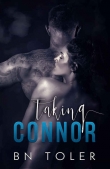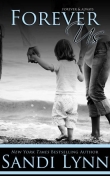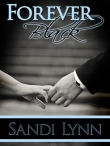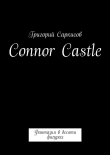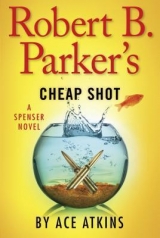
Текст книги "Robert B. Parker's Cheap Shot"
Автор книги: Ace Atkins
Жанр:
Криминальные детективы
сообщить о нарушении
Текущая страница: 11 (всего у книги 17 страниц)
41
I took Susan to Gillette Stadium that afternoon. As she strolled across the parking lot in a form-fitting navy sweater, jeans, and riding boots, I decided she looked too good for the super-fans in their oversized jerseys and painted faces. Her designer sunglasses were on top of her head and she wore a light scarf around her neck. The brisk wind smelled of hot wings and kielbasa. Susan preferred neither. I, on the other hand, appreciated both.
“Would you like me to buy you some pom-poms?” I said.
“Would this be for use now or later?”
“Probably later.”
“Then yes.”
“May have to work late,” I said.
“I certainly hope so,” she said. “At least the family would know where they stand.”
I walked with her through the growing crowd. Kickoff wasn’t for another hour, but according to sports radio, attendance promised to be a record day for regular season. I kept on wanting to call it opening day, but I knew that term applied only to baseball. Besides the standard satellite trucks from ESPN, there were droves of news crews, local, national, and cable. The disappearance of Akira Heywood and his famous dad taking the field was too good to pass up.
“So there’s no telling how the demands will be issued?” Susan said.
“Nope.”
“Do you think the kidnappers would show here?”
“Can’t imagine why they would,” I said. “It will be a phone call, text, or an e-mail. I don’t think these people wish to be infamous. I think they want to get his money and slide into obscurity.”
We had our tickets scanned, waited in line at concessions, and found our seats on the club level. They were good seats, almost directly on the fifty-yard line, with a view of the Patriots’ bench.
I ate a hot dog and drank some beer. Susan nibbled on fresh fruit. I had been unaware you could buy fruit at any stadium.
After a short while, we stood for the national anthem and watched as the starting players for the Pats were introduced. The roar from the crowd for Kinjo rattled the stadium seats. He raised a fist as he ran onto midfield and joined his teammates. And after a few more were announced, there was a kickoff and the violence began.
I particularly liked when Kinjo took the field. Not only because he was my client but because I preferred watching defense. I had been a defensive player many moons ago and liked to watch the dismantling of an offensive attack. Kinjo did a lot of dismantling in the first quarter, with five tackles and one sack. He played with a lot of rage, disguised as passion. I drank my beer slowly. If something were to happen, I needed to be alert, focused, and ready.
“Do you think Hawk is cheering?” Susan said.
“Nope.”
“Do you think Z is cheering?” she said.
“Nope.”
“You’re cheering,” she said. “Does that mean it’s okay for me to cheer?”
“I’m not cheering,” I said. “I’m yelling positive encouragement for Kinjo.”
“To knock the quarterback’s fucking head off?”
“In a matter of speaking?” I said. “Yes.”
Susan had her sunglasses down and leaned forward in her seat. Not long into the second quarter, her right leg tapped up and down with excitement. And she stood twice as Kinjo ran after the Bills’ quarterback, getting close to a sack. The quarterback let go of the ball just as Kinjo slammed into him, sending him flying. After the play, Kinjo helped him to his feet.
“I never knew you were such a football fan.”
“Lot faster than watching baseball,” she said.
“True.”
“I have to admit, I like the speed.”
“Perhaps dealing with some pent-up aggression?” I said.
Susan stayed focused on the game but smiled. The Bills punted and Kinjo trotted off the field. I checked my phone again. Nothing.
With a minute left in the second quarter, Jeff Barnes appeared at the end of the row. He looked at me and crooked a finger toward the aisle. I did not like when anyone crooked a finger at me. In fact, I had broken many fingers that had performed similar actions.
After Brady threw an incompletion, Susan caught me staring.
“Who’s that?”
“Head of security.”
“Friend?”
“Foe.”
“A casualty of your charm?”
“I’m a casualty of his.”
“Perhaps he has some news?”
I finished my beer and stowed the cup under my seat. “Perhaps.”
I made my way to the steps. I smiled at Barnes and told him what a wonderful surprise it was to see him.
“Cut the shit, Spenser,” he said. “Kinjo told me you were coming. That’s his business, we can’t stop him. But I wanted to let you know my team is aware you’re here and to be on your best behavior.”
The row was narrow, and a Coke vendor had to do some considerable acrobatics to get past our pissing contest.
“What’s the penalty for sticking chewing gum under my seat?”
Barnes flared his nostrils. He was dressed as he’d been dressed every time I’d seen him. Charcoal pin-striped suit, red tie, and a nifty NFL pin on his lapel. I smiled at him some more. His cheek twitched.
“Can you walk up the steps for a moment?” he said.
I turned to Susan. I winked at her and then followed.
We stood out of the sun and in the shadow of the narrow tunnel leading to the second level. Barnes’s steel-gray hair looked as if it had been barbered two hours ago. His face was clean-shaven, with a ruddy glow.
“Listen,” he said. “I want you to know I don’t give a damn who does what. I just want Heywood to get his kid back.”
I nodded.
“So if something happens,” he said, “and you can help . . .”
I nodded again.
“It seems Mr. Kraft is friends with an individual you helped out in the past.”
“And Mr. Kraft, being Grand Pooh-bah of this organization, has changed your mind about me.”
Barnes just stared at me. I smiled. He shook his head and looked away. Something big had happened on the field and the stadium erupted in wild enthusiasm. “The kid used to follow me around at practice,” Barnes said. “He pretended like he was a secret agent or something. Thought what I did was cool.”
I had a comment for that. But I kept it to myself.
“Okay,” I said.
“Six days of this shit,” Barnes said. “Silence? I couldn’t fucking leave my house. And he’s out there playing his guts out.”
The first half was almost over and the fans started to fill the tunnel, pouring past us to the bathrooms and concessions. Barnes turned his back and left without another word.
I returned to my seat just in time to see Kinjo knock a short pass from the tight end’s hands. He gathered the defense before the next play, calling the shots, seeing what’s going to happen before the offense lined up. If only I could do the same.
42
The ransom demands arrived five minutes after the final whistle blew, via Twitter.
FIVE MIL 4 SON. NO COPS, NO TRIX, NO MARKS MONEY. OR THE KID DEAD. DETAILS TO COME
Attached to the message was a photo of Akira. The little boy stood against a concrete wall, staring into the camera with very large eyes. Nearly impossible to trace under the handle TRUPATSFAN. Z called me as soon as the message posted. Z being the one with a Twitter account.
Hawk and I were brought down onto the field by two of Barnes’s men and then walked into the tunnel and under the north stands. Susan drove back to Cambridge with Z. Most of the players, including Kinjo, had gone into the locker room. A few other players finished up interviews on the field. There was a lot of standing around, grim talk, and whispers about the news.
“Fucking Twitter?” Hawk said.
“Yep.”
“Don’t even have the balls to type out a note.”
“I don’t think kidnappers use typewriters anymore,” I said. “Or even craft good ransom notes.”
“Lack of professionalism,” Hawk said.
I nodded.
The Pats had won by three touchdowns. But none of Kinjo’s teammates looked pleased as they passed us, giants with thick necks and limping gaits, bloody knuckles toting their helmets. Heavy cleats echoing through the tunnel. News crews waited like hyenas by the locker room door for Belichick to finish his postgame talk.
“Wanna bet it’s another hoax?” Hawk said.
I shook my head. “Nope,” I said. “It’s time. Same ones from the radio show.”
“Paulie and the Gooch.”
“Boston’s own number-one sports duo.”
“And so we wait some more.”
“Special Agent Connor won’t let us get close to the planning or the drop.”
“Ain’t up to Connor,” Hawk said.
An official-looking guy in a dark suit asked us if we were with the press. Hawk just stared at him.
“Just to let you know, Kinjo Heywood will not be appearing at the press conference or answering any questions,” the man said. “We ask that you respect his family’s privacy at this time.”
His nametag stated his name was Stacy James and that he was vice president of media relations. I told him we weren’t media. As he turned and walked away, Hawk grunted.
“Must’ve mistaken you for a sideline bunny,” I said.
“And you an ex-athlete.”
I’d been inside a lot of arenas, both as a fighter and on other cases. But I’d never heard a postgame crowd so quiet. The smooth concrete tunnel wrapped around to the office elevators, weight room, and coach’s offices. Coaches and players parted the locker room doors and the crowd, heading toward the media room to take questions. Golf carts zoomed past us, loaded down with trainers’ supplies, equipment, and buckets and buckets of water and Gatorade.
Hawk leaned against the expansive concrete wall.
After a long while, I leaned on the wall next to Hawk.
Across the hall, there were faint sounds coming from the press conference. Freshly showered and shaved players in expensive tailored clothes hobbled from the double metal doors and walked into the media room. More downcast eyes. More whispers. The postgame started to feel like a wake. The news that Akira really was being held, this wasn’t some kind of misunderstanding, seemed to just be dawning on Kinjo’s teammates.
Ray Heywood found us before Kinjo walked out.
He was wearing a light gray pin-striped suit, white shirt, no tie. His round face was sweaty and serious when he got to us. Ray was very out of breath.
“Y’all hear that shit?” he said.
Hawk nodded. I nodded.
“Five million,” he said. “Five fucking million.”
“Can it be raised?” I said.
“Yeah, sure,” he said. “But depends on how soon they call it in. It’s not like Kinjo stacks it in the freezer or in the trunk of his damn car.”
“His bank will open for him,” I said. “Even on Sunday.”
“Yeah,” Ray said. “I guess we been waiting on this. But five million is a lot.”
“One year of play,” Hawk said.
Ray nodded. He ran his hand over his sweating face. The front of his dress shirt was soaked with sweat. “Kinjo wants y’all with me,” he said. “From the bank to the house.”
“What about the Feds?” I said.
“Fuck the Feds, man,” Ray said. “That’s what Kinjo told me and what I’m telling y’all. The Feds officially can’t take part in handing over the money. That doesn’t mean they won’t be around. But they can’t be seen.”
“And have they gotten any closer?” I said.
“Shit, I don’t know,” he said. “You?”
“We have a person of interest,” I said. “Although calling him a person may be a bit of a stretch.”
“Cops know about him?” Ray said.
“Sure,” I said. “They brought him in.” Hawk pushed off the wall.
We walked to the center of the long tunnel with Ray. Kinjo hadn’t come out yet. Maybe sixty reporters had been let into the locker room, with fifty still waiting outside. There were players’ wives and coaches’ wives. Several kids about Akira’s age running in the tunnel, tossing game balls around.
“So y’all come with me,” Ray said. “Get the money. And then watch the money?”
Hawk tilted his head. “Better than watching the action from the stands.”
“When?” I said.
But Ray had already turned around to take a cell-phone call, back turned to us, holding up a finger for us to give him just a minute.
“They want me to guard five mil?” Hawk said.
“Ironic,” I said. “Isn’t it?”
43
As the kind of guy who carried most of his money in his wallet, five million was a little hard to wrap my head around.
Hawk and I had plenty of time to contemplate it on the drive back from Foxboro. Hawk said he’d actually seen four million on a table once. A million bucks made up of hundreds would fit nicely in a shopping bag. According to Hawk, all of it would fit in a couple of large duffel bags or suitcases.
“Tricky for a getaway,” I said.
“Could do a wire transfer,” Hawk said. “But Feds would cover them like flies on shit.”
“Appropriate analogy.”
“Ways to reroute that money,” Hawk said. “I’d have a pickup man somewhere overseas.”
“Given you have those kind of resources.”
Hawk nodded. We parked along State Street in front of a bank building with mirrored windows that seemed to continue above the clouds. It was twilight and the day had turned a soft, pinkish gold, with a brisk wind off the harbor. I still had on a blue hunting shirt I’d bought at Ball and Buck, Levi’s, and my dress pair of New Balances. I took off my sunglasses in the lobby but kept the vintage Dodgers cap.
All that money might throw a glare in my eyes.
We were met by security, satisfied the security, and made our way up to the twenty-second floor. Kinjo had been given a police escort and had been joined by his brother, Ray, and super-agent Steve Rosen. Kinjo nodded at us. Super-agent Steve ignored us. And Ray Heywood was too busy countersigning on five million to notice.
There were a handful of federal types, Tom Connor not to be found among them. They eyed me and Hawk with admiration, or more likely suspicion. I eyed them back as we waited. It gave me something to do. They wore official badges on their belts and guns in shoulder holsters.
The plan was for Team Kinjo to view the counting of the money, sign the many documents for the money’s release, and then Hawk and I would drive the cash back to Chestnut Hill with an escort from the state police and the Feds.
“I just hope they haven’t spotted your mug at the post office,” I said.
“Babe, my image can’t be captured,” Hawk said.
The twenty-second floor was soon exchanged for the second floor and the main lobby of the bank. Twelve men and women greeted us in a very large conference room wearing plastic gloves and running used hundred-dollar bills through a dozen high-speed money counters. Two stainless-steel hard-shell suitcases sat on a table in the center of the room. A young woman wearing jeans, a T-shirt, and Ugg boots packed stacks of cash, already prepackaged and sealed in shrink-wrap for the kidnappers’ convenience.
Hawk nodded toward the suitcases. With pride, he winked at me.
“You mind me asking when was the time you saw the four mil?” I said.
“There was a general in the Congo Republic,” Hawk said. “He liked to buy a lot of weapons, women, and drugs.”
“Of course.”
There was the constant whir of the money counters. All the tellers were young, quiet, and attentive to the job. All wearing street clothes, brought in late on their days off.
An hour elapsed, and someone sent out for sandwiches and coffee.
Two hours elapsed, and Steve Rosen walked out of the conference room and into the darkened lobby where we sat. He held two clipboards in his hand.
He tried to hand one to each of us.
“Confidentiality agreement,” he said. “And that you are responsible if any of the cash goes missing. Yadda. Yadda. Typical shit.”
We did not reach for the clipboards.
“Bank requires it,” Rosen said.
I shrugged.
“Insurance company requires it.”
I shrugged even more.
“And I require it,” Rosen said.
“We already discussed terms,” I said.
“That was a million years back,” Rosen said. “This is here and now. This is what I need. Don’t be a pain in my ass. Okay, Spenser?”
“We had an agreement,” I said. “And this is the same job.”
Rosen whipped his head back as if I’d slapped him. “Really? And him? Him I don’t know from Adam’s fucking housecat.”
Hawk grinned.
“He’s with me.”
“But who the fuck is he?” Rosen said. He had a great face for smirking, wide and rubbery.
Hawk stood. He did not announce his name. He just looked down at Steve Rosen and studied him with curiosity. Rosen sniffed, his face continuing to go sour.
“I don’t need this shit right now,” Rosen said. “I’ve been an agent for fifteen years. I get the respect from my clients because they know I’m an athlete, too. I know the jock code. When I was putting myself through law school, I worked my way up to second-degree black belt in tae kwon do. I still commit myself to the training every day.”
Hawk grinned wider. His teeth were very white and perfect.
“Oh, no,” Hawk said.
“I’m just saying if you want to fucking get into it,” Rosen said, “I’ll fucking get into it with you, brother. This isn’t the time.”
Hawk took a short breath, crooked his head to the right, popping his neck, and hit super-agent Steve Rosen very quick and very hard in the solar plexus.
Rosen landed hard on his knees. He was working on breathing.
Hawk and I walked toward the money-counting room. Ray and Kinjo met us at the door. Most of the money on the table, nearly all of it, had already been shrink-wrapped and loaded into two suitcases.
“I don’t give a damn about any of this,” Kinjo said. “You hear me? We get the money to these sons a bitches. But I don’t want them spooked or scared off. You help me keep the Feds away. I do what these people say and don’t want any problems. Akira comes back unharmed.”
I nodded.
Ray Heywood was looking over Hawk’s shoulder. “Oh, shit,” he said. “Something’s wrong with Steve. He’s having a heart attack or something.”
“All that money flying out the door?” Hawk said. “Guess it really do get to a man.”
44
We delivered the money without incident to the Heywood house. Since the stone mansion was surrounded by half the cops in Massachusetts, I felt comfortable dropping Hawk at his car and returning to my apartment for a fresh change of clothes.
The kidnappers had contacted Kinjo again. Each time, they had jumped to a new Twitter handle. The Feds pegged that the messages were coming from one of the many thousands who’d used the city’s free Wi-Fi that day. A break in the case was as imminent as finding the proverbial needle in the haystack.
I brewed some coffee and pulled out my gun-cleaning kit from my closet. I laid my cell phone on the kitchen table beside my .38 and .357. I unfolded a well-used red cloth on which to rest my .38. I removed the bullets and began to run a brush though each cylinder and then brushed out the barrel. A clean gun is a happy gun.
After the brushing, I changed tools and attached a clean patch to the cloth, spraying a little gun oil on the cloth. I played an old Dave McKenna LP as I worked. Fond memories of Susan and me at the Copley Plaza and days gone by.
I cleaned the .38 more. Fond memories of shooting men who were about to shoot me.
The little patch came out clean each time. But the routine felt right, adding a little oil to the patch, and then spraying some oil into the cylinder. I ran the red rag over the .38 and set it aside, picking up the .357. The .357 needed the cleaning more, as I’d just taken it to the range a few weeks ago with Z.
McKenna played “Fools Rush In (Where Angels Fear to Tread).”
I smiled a bit. I got up, called Susan, and poured some coffee.
When I hung up, it was a little after eleven.
Hawk called. He was headed back to the Heywoods’.
I drank some coffee. I went through the routine on the .357. The patch came out slightly dirty this time. I ran another patch through to make sure it was clean. I added some oil to another and sprayed the cylinder. I spun the cylinder.
McKenna played “Deep in a Dream.”
I was back at the old Oak Bar. Susan and I were young, McKenna was alive, and the Sox were still the lovable bums of old. The bar was dark wood panels and leather furniture and familiar bartenders and a genial wave from McKenna, who was known to listen to ballgames while he played. I wondered if I could listen to ballgames while I shot. I decided not, and set the .357 aside. I found a leather rig for the big gun and clipped the .38 to my belt behind my right hip.
Whatever the kidnappers had in mind had been set in motion.
And all we could do was sit and wait.
I removed the needle from the record, locked up my apartment, and drove off along Marlborough Street.
45
Two more photos of Akira were sent from separate Twitter accounts. Both shut down after being sent. One of them showed the child seated in a big, ugly green recliner. His face blank, eyes wide with exhaustion and fear. The next showed the child wearing Kinjo’s game jersey, eyes cast downward, and holding up his index finger in the number-one sign. Each shot was very close, impossible to tell much about the location of the photo if the kidnappers were caught.
Kinjo sat alone in his media room while he waited. He watched video from the game. He’d run a play back and forth twenty times before moving on.
It was one o’clock in the morning and the house was very still but alive with federal agents and cops. The two suitcases sat in the center of the living room as if to underscore the waiting.
I was adding sugar to my coffee when Tom Connor strode into the kitchen, talking on his cell phone. He eyed me, a second of hesitation, but continued toward the big island in the center of the room. He stood across from me and made his own coffee. I did not offer him any sugar or cream.
“What’d you make of that last one?”
“The taunt?” I said.
“Right?”
I nodded. I drank some coffee.
“Why dress up the kid as Kinjo, make him do all that shit?”
“Personal.”
“As in Antonio Lima?”
I shrugged. “I haven’t dismissed the possibility.”
Connor nodded, poured maybe half the sugar container into his coffee. He held the coffee and squinted his eyes in thought, nattily dressed in an official FBI golf shirt and black dress pants. I wanted to ask him if there was a special store catering only to the Feds. But with age comes wisdom. I drank my coffee, curious as to what he wanted.
“One week,” Connor said. “And we got nothing.”
I nodded, employing an old crime-buster technique—shut your mouth and let the other person keep talking.
“You went to New York,” Connor said.
“Yep.”
“And talked to Lima’s brother?” he said. “Met with the old lady?”
“I did.”
“Me, too,” he said. “What did you think?”
I shrugged again. I drank some coffee. The kitchen light shone off Connor’s helmet of perfect hair.
“And you found out they’d been paid out.”
“I did.”
“We didn’t know that,” Connor said. “Kinjo brought it up. Says he’s innocent but didn’t need the attention.”
I nodded.
“You believe that?”
“He said he wasn’t involved,” I said. “My job is to take him at his word.”
“We worked three different cranks,” Connor said. “Including those goddamn numbnuts from Charlestown. Jesus H. Those were some whack jobs. That steroid freak? He was the mastermind. Wanted to use the ransom money to open a dog-grooming business.”
“We all have a dream.”
“But you’re onto something,” Connor said. He smiled, trying to pull me along. “Right? You go up to New York, work that clusterfuck, and then nothing? I don’t believe it. You’re holding out.”
“I never stopped thinking there was a connection,” I said. “But since getting back, I’ve been a little sidetracked.”
I rested my left hand on the kitchen island. A couple more Feds walked into the kitchen, looking for some stray donuts. Connor gave them the stink eye, and they turned on their heels and left. “What is this, Denny’s?” he said, grinning more at me. Just a couple of old pals shooting the breeze.
“Why’d you go see Gerry Broz?”
Ah, I thought.
I shrugged, tilted my head. “Catch up on old times,” I said. “Offer my condolences on his late dad.”
“Joe was a grade-A turd.”
“But you worked with him.”
“And you don’t work with street creeps, hustlers, and pimps when you need it, Spenser?” Connor said. “Don’t get all high and mighty on me. We swim in the same fucking ocean.”
I took a long breath through my nose and let it out the same way. The coffee had grown cold and I set it in the microwave to reheat. In the living room, Cristal Heywood lay sleeping on the couch. In Akira’s bedroom, Nicole Heywood was probably still wide awake and staring at his fish tank.
From the kitchen, you could see Cristal covered in a large blanket, eyes closed, an empty highball glass on the coffee table. Her arm was draped out from under the blanket, long red nails dangling down to touch the perfect white carpet.
“You don’t have to tell me jack,” Connor said, speaking quietly. “But if you want to help the kid, maybe we should talk.”
I waited. The microwave dinged, and I grabbed my coffee. Connor was staring at Cristal.
“Gerry said you wanted to know about Kevin Murphy,” Connor said. “You think we hadn’t thought about that? We know her background.”
“Then what’s to discuss?”
“That you know something else,” he said. “So what if she liked to show off her goodies on the Internet? Why Murphy?”
“Why not?”
I considered my options. Tom Connor was a distrustful, immoral creep. And I’d rather have my manly parts roasted over an open flame than work with him. But my job wasn’t to vet the help. My job was to facilitate the return of an eight-year-old boy to his father. And if working with the devil himself would help, then I’d explore my options.
“An associate of Kevin Murphy followed Kinjo a couple weeks ago,” I said. “He drove the same vehicle and all but admitted he’d been nearly shot by my client.”
“This was how long before the kidnapping?” Connor said.
I held up all my fingers and exposed my thumbs.
“You follow him?”
“All the way to the depths of Dorchester,” I said. “He has a first-class studio over a convenience store near Fields Corner.”
“Anything?”
“Business as usual,” I said. “Caught Murphy in the act of adding to his oeuvre.”
I could tell that Connor was not familiar with the term. Probably not a fan of Godard or Truffaut. Or even Roger Corman.
“I want to pick him up,” he said. “You say Kinjo can finger the guy he works with?”
“Yep,” I said.
“I want to talk to him.”
“You guys have a little more muscle when it comes to gaining warrants,” I said. “And getting someone to flip on their employer.”
“But you like this guy Murphy for it?”
I shrugged. “Not especially,” I said. “But it’s pretty much all we got besides the Lima family.”
“You explain the odds to your client?” he said. “About actually ever seeing his son again?”
“I tried.”
“Maybe we should both try harder,” Connor said. “Everything about this feels wrong.”




